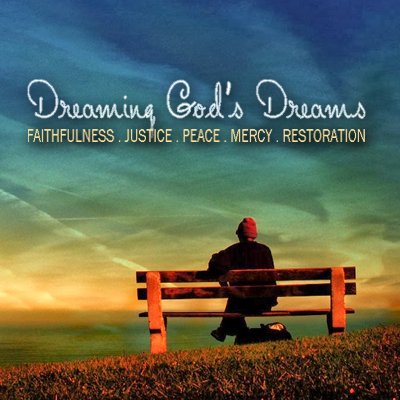Depth of Mercy
Dreaming God’s Dreams: Part 4
Sunday, November 13, 2022
Jonah 3:10-4:11; Matthew 9:13; Romans 5:8
God saw what they were doing—that they had ceased their evil behavior. So God stopped planning to destroy them, and he didn’t do it.
But Jonah thought this was utterly wrong, and he became angry. He prayed to the Lord, “Come on, Lord! Wasn’t this precisely my point when I was back in my own land? This is why I fled to Tarshish earlier! I know that you are a merciful and compassionate God, very patient, full of faithful love, and willing not to destroy…
…"But the Lord said, “You ‘pitied’ the shrub, for which you didn’t work and which you didn’t raise; it grew in a night and perished in a night. Yet for my part, can’t I pity Nineveh, that great city, in which there are more than one hundred twenty thousand people who can’t tell their right hand from their left, and also many animals?”
Jonah 3:10-4:2, 4:10-11
Listen to this week’s sermon here:
____________________
When I was a kid we used to play a game called "mercy." I've also heard it called "uncle" and I'm sure it has gone by many other names in various places. Basically two people interlock their hands and then try to twist each other's fingers until one person says "uncle" or "mercy", indicating that they can't take the pain any longer and they concede the match. In some ways it's a simple test of strength like arm wrestling, except that it involves far more pain.
I haven't thought about that game in years, but as I consider the idea of mercy in our world, it speaks volumes. Most often we are quick to want mercy for ourselves. When life is tough, we pray the Lord might have mercy upon us, that he would put an end to our pain by whatever means necessary. Sometimes we might even step in on behalf of a loved one who seems to have had more than his or her share of suffering and pray that they might find mercy.
"Blessed are the merciful," Jesus says, "for they will be shown mercy" (Matthew 5:7).
This idea is not dissimilar to the Lord's Prayer where we ask God to forgive our trespasses as we forgive those who trespass against us. Show mercy upon us as we show mercy to others.
But that's where things get tricky. What about those people who we feel don't deserve "mercy"? What about the ones who brought suffering upon themselves? What about the ones who are not merely innocent victims of circumstance? What about the ones who would never show mercy to us if the roles were reversed?
This is where that whole, "Love your enemies" teaching comes into play.
But why?
It's not because they deserve it, because truth be told, we don't deserve mercy either. Rather, we must extend mercy even to the least deserving because God created them in the Divine Image and God still loves them as God loves us.
The prophet Jonah never quite learns this lesson. The people of Ninevah are evil. They are known for their brutality in war and they show no mercy to those they conquer. They are the least deserving people in the world. God should wipe them off the face of the earth without hesitation or warning.
Yet Jonah is sent to warn them. He is certain they will not respond positively. They are too far gone.
But to Jonah's surprise and dismay, the people of Ninevah do respond. They repent of their evil ways and they cry out to God for mercy.
"Too late", Jonah thinks. "Should have thought about that sooner."
But God's mercy is patient. It's never our place to decide when it's too late.
And here is the great tragedy. When we decide that someone else is undeserving of mercy, we become unable to receive God's mercy ourselves. God has been as merciful to Jonah for his own rebellion as he was to the Ninevites, but Jonah is never able to recognize it. Instead he wallows in self-pity because somebody else got what he didn't think they deserved.
Perhaps this is one reason we are called to work for God's dream of extending mercy to all, for only in granting mercy to others can we receive mercy for ourselves.
When we don't get what we deserve
That's a real good thing, a real good thing
When we get what we don't deserve
That's a real good thing, a real good thing- Newsboys, “Real Good Thing”, 1994


